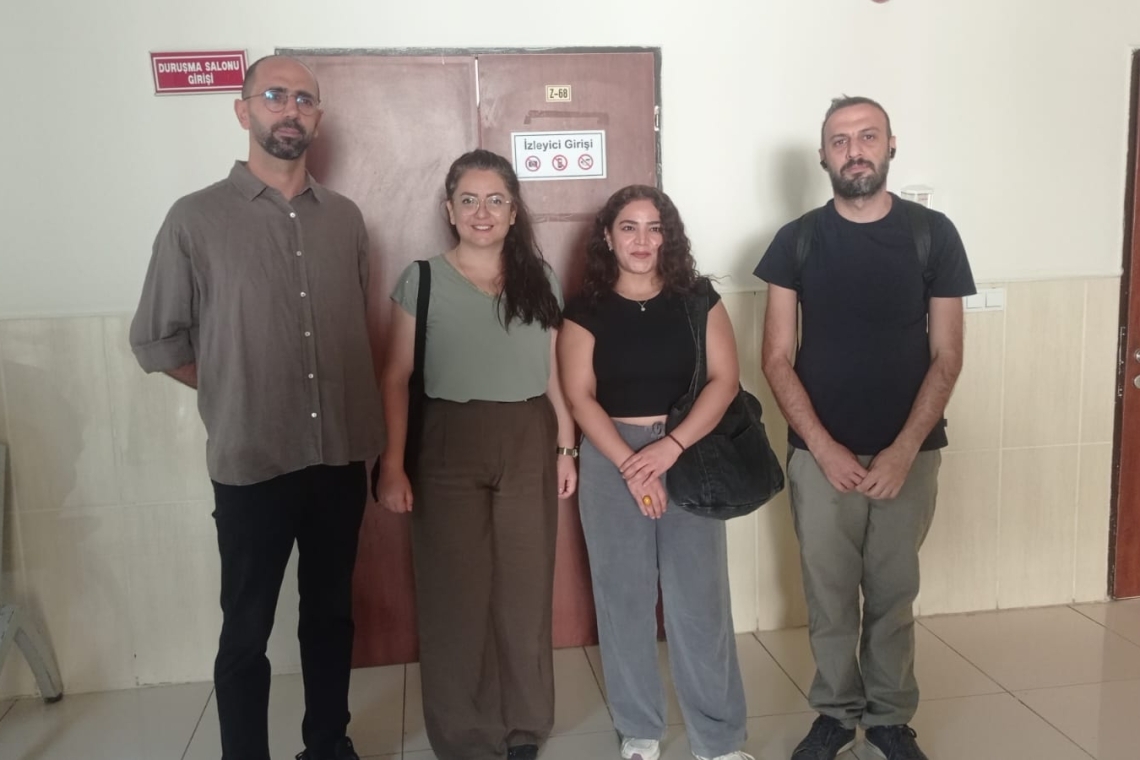Deniz Tekin
A High Criminal Court in southeastern Turkey has postponed until 2026 the trial of 19 journalists accused of “membership in a terrorist organization” and “spreading terrorist propaganda,” charges they deny and say are linked to their journalistic work for Kurdish media outlets based abroad. The court also ruled to uphold the travel bans imposed on the defendants, preventing them from leaving the country.
The 8th hearing of the case was held at the Diyarbakır 4th High Criminal Court on Wednesday. The journalists are affiliated with three production companies — Pel Yapım, Piya Yapım, and Arî Yapım — which operate in Diyarbakır, a city with a large Kurdish population in southeastern Turkey. The case stems from a 2022 police operation targeting these media outlets, during which the journalists and media workers were detained.
Journalists Ömer Çelik, Elif Zilan Öngör, and Neşe Toprak were present in the courtroom with their lawyers, while journalist Aziz Oruç and his attorney Hazal Sürmeli joined the hearing via videoconference from Istanbul. The trial was monitored by Selman Çiçek, co-chair of the Dicle Fırat Journalists Association (DFG), and several other journalists.
In his defense statement, Aziz Oruç rejected the allegations and said he did not know the individual mentioned in the indictment. “There is no legal basis for these accusations. The indictment attempts to define journalism itself. I have been a journalist for 14 years. I was previously detained for 11 months on similar charges and was acquitted. We are journalists reporting in the public interest. The charges in the indictment are disturbing,” he said. Oruç also noted that the travel ban prevents him from covering international stories and requested that it be lifted.
Journalists Elif Güngör and Neşe Toprak stated they had no additional comments for now. Ömer Çelik also addressed the court, saying, “We are journalists. The travel ban has been in place for a long time. I ask the court to take this into consideration.”
During the hearing, witness Helin Kolpar told the court she had no knowledge of the case and could not remember her previous testimony. She said she did not recognize the defendants or know the media organizations involved. The presiding judge criticized her response, saying, “You are saying no without thinking. At least pretend like you’re thinking.”
Defense attorneys argued that the witness had no direct connection to the case. Another witness, Keje Kuday, also said she had no information about the journalists or the production companies. Özgür Baran, a witness held in Kırşehir S-Type Prison, refused to testify, while another inmate from the same facility, İbrahim Coşkun, said he had never heard of the journalists or the organizations before.
Attorney Hazal Sürmeli expressed support for her client’s statements and rejected all claims against him. Another defense lawyer, Resul Temur, argued that the witnesses had no relevance to the case and asked the court to dismiss them from proceedings. He also requested the return of the journalists’ confiscated digital materials and the lifting of the travel bans.
In its interim ruling, the court agreed to drop the remaining witness testimonies and ordered the police to return the seized digital materials. However, it upheld the existing travel bans on the journalists. The next hearing is scheduled for Jan. 20, 2026.



